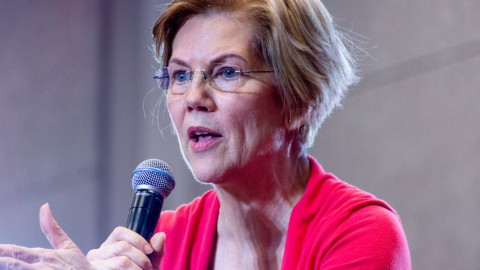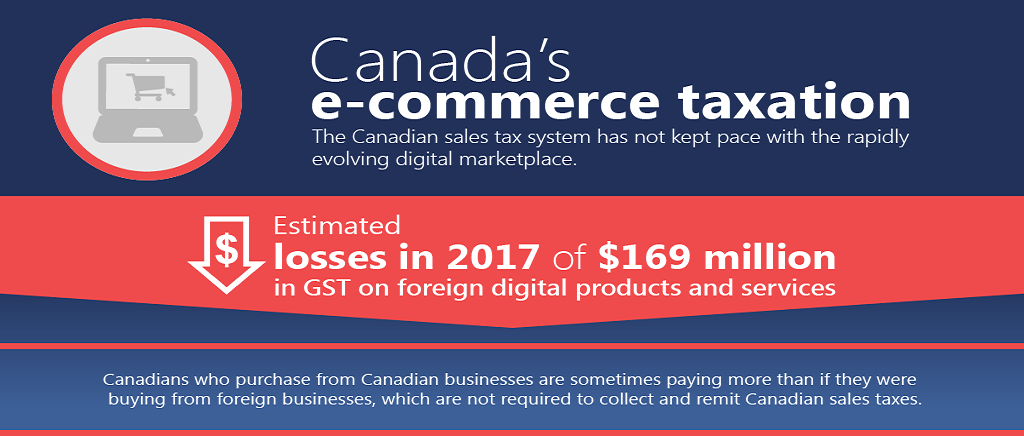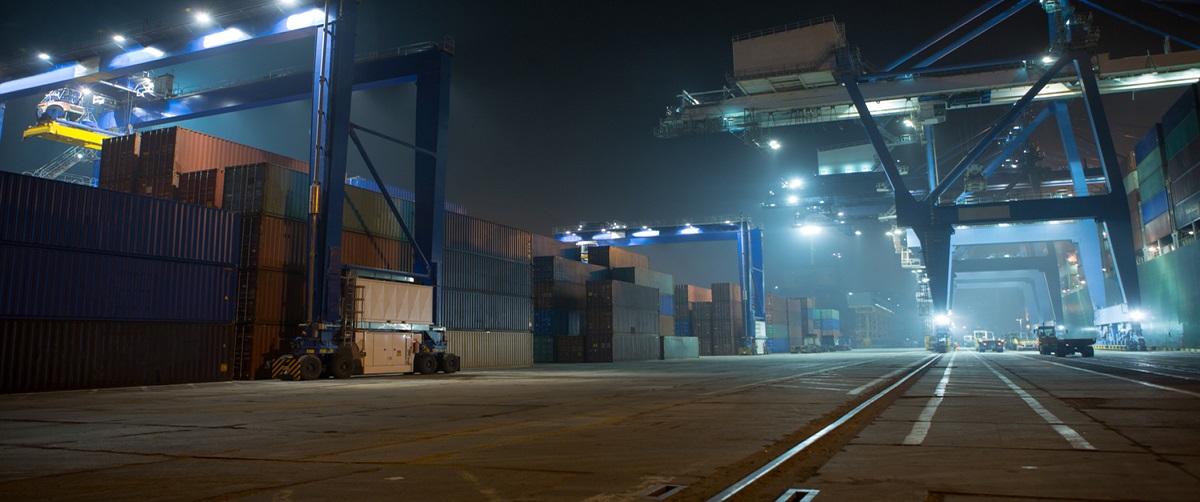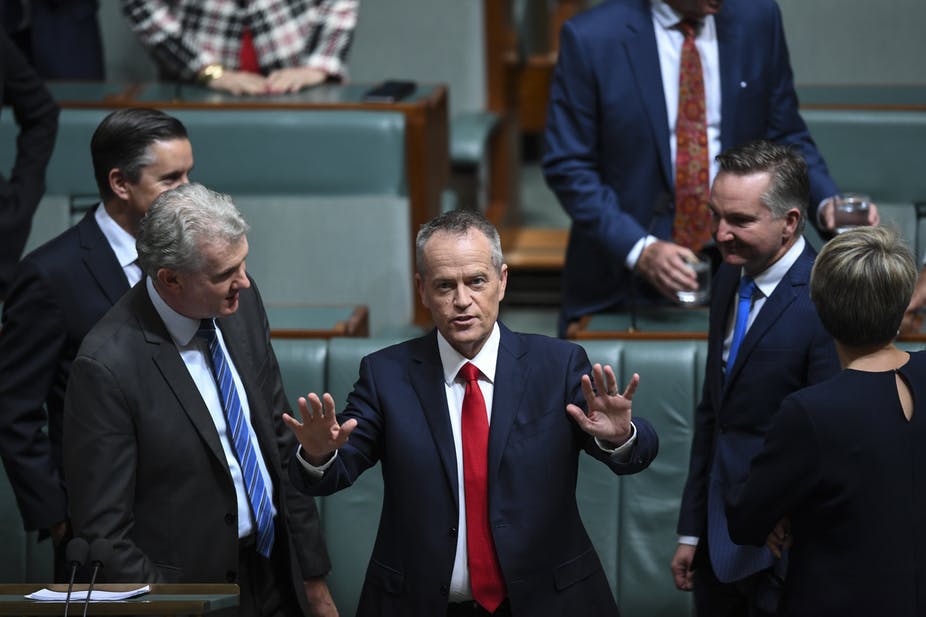10 mai 2019

To keep our supporters informed and connected, we send a weekly newsletter with highlights of recent progressive tax developments in Canada and around the world. You can sign up to receive our newsletter here. Here is this week's roundup of tax fairness news:
Photo: A recent poll found Canadians would back a wealth tax. In the US, Senator Elizabeth Warren proposed an annual wealth tax on millionaires. Credit: Marc Nozell, Flickr
Wealth tax wanted by most Canadians, even Conservatives: poll
The majority of Canadians support a wealth tax on the very rich, according to a new poll commissioned by North99. In the US, Democrat Senator Elizabeth Warren has proposed an annual wealth tax of 2 percent on families with wealth above $50 million. Of the 2,000 Canadians polled by Abacus Data, 67 percent supported a 2% annual wealth tax on household wealth of over $50 million while 17 percent were unsure and only 14 percent were opposed.
Ricochet Media noted some surprising findings. Those 60 and older were most supportive of the tax while people aged 18 to 29 were less likely to endorse it. Support spanned across political lines with 60 percent of Conservatives, 78 percent of Liberals and 80 percent of NDPers backing the wealth tax.

An infographic from the Auditor General shows the unfair competition between Canadian companies and foreign e-commerce corporations.
Canada’s tax system not keeping pace with digital economy: AG
Canadian businesses face an “unfair disadvantage” in relation to foreign e-commerce companies, the Auditor General confirmed in a report released this week. While domestic companies must collect and remit sales tax on top of income tax, foreign e-commerce corporations such as Netflix and Facebook do not. The watchdog estimated that amounted to losses of $169 million in the GST on foreign digital products and services sold in Canada in 2017 alone.
The amount would likely be higher today given the increasing shift to online retail. Because companies can deduct foreign internet advertising costs, Canadian businesses are taking a double hit.
According to the Auditor General report, Finance Canada has acknowledged that this bias against Canadian-based companies could even have encouraged Canadian vendors to move their operations abroad and discouraged foreign investment here. The AG’s findings establish many of the arguments that C4TF has made in our campaign to level the digital playing field.
The vast majority of other OECD and G20 countries have taken steps to address tax challenges created by the digital economy, but Canada is one of the very few that haven’t—despite the damage to the economy and jobs, and a wide range of stakeholders urging the federal government to act.
As other countries introduce new measures to level the playing field, an interesting Bloomberg column this week reflects on the most recent proposal by the Czech government to place a 7 percent levy on targeted online advertising, arguing this is the best way to tax Google and Facebook.

Two new reports this week point to the urgent need for an open registry of beneficial ownership to shed the light on anonymous companies. Photo: Alexey Lexik.
Beneficial ownership key to crack down on illicit activity: reports
Tougher laws and greater transparency are what’s needed to fix Canada’s money-laundering problem, according to a new report by the C.D. Howe Institute. “Why We Fail to Catch Money Launderers 99.9 percent of the Time” estimates $100-130-billion in dirty funds are laundered in Canada every year, but regulators and law enforcement have a hard time clamping down on this criminal activity due to a lack of information and weak transparency laws.
The report recommends the federal government create an open registry of beneficial owners and offers solutions to privacy concerns, such as dividing the registry into public and confidential information. It was authored by Kevin Comeau, a member of the Beneficial Ownership Working Group that C4TF has organized. You can listen to his interview in this C.D. Howe podcast.
Comeau’s report comes on the heels of another study released this week by the US-based FACTCOALITION that underscores the financial and human risks of anonymous ownership in the US. Anonymous companies are trafficking illicit goods into the country. Some of the scariest examples include counterfeit medicines to treat breast cancer and knock-off parts to the Pentagon that cost the military tens of thousands of dollars. The coalition urges government to get on board the global trend towards greater transparency.
Canada needs to as well, but it’s important that we do it correctly. The advocacy group Global Witness recently released an analysis of the UK’s new public registry and found several flaws in the system that have allowed money launderers to use companies with no beneficial owner listed. Their report makes recommendations to improve the registry such as giving government power to verify information it receives as well as stronger enforcement and sanctions against those that break the rules.
Earlier this year, BC announced it would create an open registry to curb money laundering activities. The former RCMP deputy commissioner just released a report that found $5.6 billion of illicit money travelled through BC real estate transactions alone last year. BC’s Finance Minister Carole James hinted that some other Canadian provinces are also considering an open registry and a Globe editorial this week endorsed our call for a federal beneficial ownership registry.

Millionaires on the move to tax ‘friendly’ regions
Australia, the U.S., Canada and tax havens such as Singapore, Switzerland and the Cayman Islands are some of the top destinations for the world’s wealthiest expats, according to a study by New World Wealth. The market research group found many mobile millionaires are taking up residency and refuge in both stable and safe countries and tax havens.
According to a partner at a firm that helps the affluent relocate around the world, “the wealthy today don’t really have a country.” Business Insider counts down the top 12 countries, which include Canada in third place after Australia and the US. They estimate that 4,000 millionaires moved here last year, attracted by a top income tax rate that’s lower than the US and by investor immigration programs that allow wealthy immigrants to buy their way into a citizenship. Many wealthy foreigners are also investing in Canadian real estate, attracted by our weak disclosure and beneficial ownership transparency rules, which have driven up housing prices and made Canada an international destination for money laundering.

Bill Shorten, leader of Australia's Labor Party, which released an extensive tax fairness platform in the final week and a half of the country's election. Lukas Coch/APP
Australia Labor Party vows to crack down on tax avoidance:
With just over a week to go before Australia’s election, the leading Labor party has released an impressive set of proposals to tackle tax havens and loopholes and improve transparency.
Some of its promises include a tax haven blacklist to vet foreign investments from over a dozen notorious low-tax jurisdictions; multi-million-dollar punishments for those who promote tax avoidance schemes; mandatory reporting of tax haven exposure to shareholders; and denying deductions to high-earning firms that invest IP royalties in tax havens. It also plans to invest $500 million in the Tax Inspectors Without Borders program, a UN-OECD initiative that helps developing countries track and regulate tax evasion.
Tax havens have featured prominently in Australian media and politics this year following public outcry over a multi-billion-dollar foreign takeover of the country’s hospital operator by companies with links to the Cayman Islands.
~
Please consider making a small donation to Canadians for Tax Fairness to help us advocate for a progressive tax system where all individuals and corporations pay their fair share.